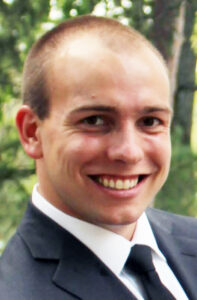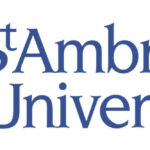By Patrick Schmadeke
“We have always been a people of memory.” This thought pierced my consciousness recently while reading about the Greek and Roman novels. As it turns out, this dynamic manifests itself in deeply fundamental ways for Catholics. I’ll come back to that shortly, but first here’s some background.

What struck me about the Greek and Roman novels, written around the first three centuries CE, is that they show an obsession with the values of Ancient Greece typified some 500 years prior to that time. They even imitate the dialect of their forebears.
Interestingly, this was not a uniquely secular practice in antiquity. At the risk of oversimplification, consider the way ancient Jews, upon returning from exile in Babylon, insisted upon living according to the Mosaic law. Similarly, the first Christians looked to their past by preserving memories of Jesus. Some even melded the stories of Jesus with their Jewish heritage by seeing Jesus as a new Moses, a new lawgiver in the Sermon on the Mount (Matthew 5-7). We remember the past to make sense of the present.
We do this today as a country. The history and principles espoused in our founding narrative, the American Revolution, hold pride of place in the American psyche. We invoke the ideals of the founding fathers as an expression of high patriotism. In our nation’s Capital the memories of these figures are preserved in stone statues and we engrave their melodic maxims in marble. The past is idealized as pristine, even idolized.
In any age, such expressions of memory contribute to a narrative of self-understanding. Our memories make us a people of story, and the function of story is identity forming.
Aware of this reality, the Second Vatican Council insisted that we listen to “the signs of the times,” or the stories that are being told, so that we may shine the light of the Gospel on them. We measure the stories of our times against the standard of Christianity’s founding story — the Gospel.
Two prominent stories of our times, that of Brexit and of the political discourse in this country are codified in phrases such as “Let’s take back control” in favor of Brexit, and “Make America Great Again” by President Trump. Without offering any evaluation, we can observe that both phrases emphasize an ideal past. Conjuring up memories of the past, as we have seen, is a trait common to human history. In some measure, this is even written into our biology. Play someone the first few seconds of a song they knew in high school and the lyrics flood their memory in an instant. We cherish the good old days. That’s okay. But it’s also not enough.
This is where faith comes in. Faith tells us what we need to remember to orient our present priorities and future expectations. The Eucharist demonstrates this beautifully. We don’t repeat the past in our liturgy, we actualize it. It is not a time machine that returns us to the past. Eucharist, rather, rests at the intersection between memory and hope. It is the exquisite ritual articulation that Christ doesn’t simply exist in yesteryear. Rather, the risen Christ beckons us to taste the eschaton already in our midst.
We neglect this when we remember poorly, or selectively, by insisting that the past was the golden age. To relish in “the way things used to be” is to ignore God knocking at our door. “God is eternal newness. He impels us constantly to set out anew, to pass beyond what is familiar.”
(Gaudete et Exultate #135). This is not mere sentiment. It is the relational quality of our eucharistic theology. In the words of Saint Teresa of Avila, “Christ has no body now but yours…yours are the hands, yours are the feet, yours are the eyes, you are his body.” The body of Christ deserves the nourishment you bring to it and the newness of life God is calling you to. For Catholics, remembering well doesn’t look like going back in time. It looks like practicing the basics. It looks like nourishing the body of Christ. It looks like taking care of each other.
(Editor’s note: Patrick Schmadeke is a graduate of St. Ambrose University (‘13) and a student in the Master of Divinity program at the University of Notre Dame. His column offers reflections on his coursework, engaging with the richness of the Catholic Tradition and its relevance to the world today.)











